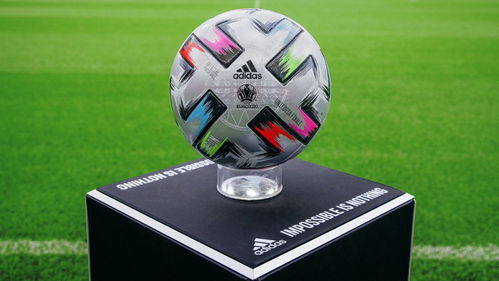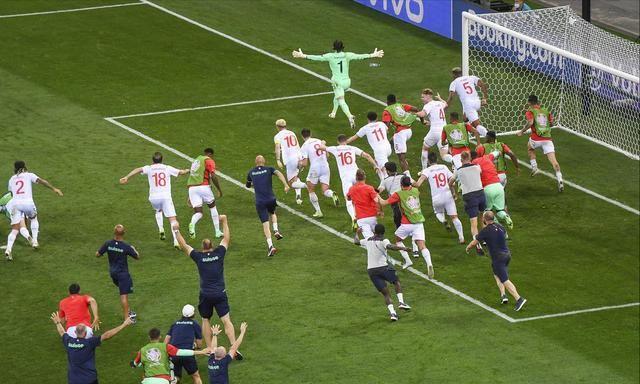TheAbsenceofTimeintheEuropeanChampionship:ADeepDiveintothePhenomenon
The European Championship, often referred to as the Euros, is a quadrennial football tournament that captivates the attention of millions across the continent and beyond. It is a spectacle of skill, passion, and national pride, where the best teams in Europe vie for the coveted title. However, a peculiar phenomenon has been observed in discussions and reports about the Euros: the absence of time. This article delves into the reasons behind this curious omission and explores the implications it has on the understanding and appreciation of the tournament.
To begin with, it is essential to clarify what is meant by the "absence of time" in the context of the European Championship. It does not refer to the literal absence of temporal markers in the tournament's scheduling or the matches themselves. Instead, it refers to the tendency of media outlets, commentators, and fans to focus on other aspects of the competition, such as team performances, player statistics, and tactical analyses, while often neglecting the temporal dimension of the games.
One of the primary reasons for this phenomenon is the nature of football itself. Unlike sports with more explicit time constraints, such as basketball or American football, football matches have a fluid concept of time. While there is a standard duration of 90 minutes for a match, the addition of stoppage time and the possibility of extra time and penalty shootouts can make the actual length of a game unpredictable. This fluidity can lead to a deemphasis on time as a critical factor in the outcome of matches.
Moreover, the narrativedriven nature of sports reporting and analysis often prioritizes storylines and human interest over the granular details of time. Journalists and commentators are more likely to discuss the heroic lastminute goals, the dramatic comebacks, or the tactical masterstrokes that define a match rather than the exact minutes in which these events occur. This focus on the narrative can overshadow the temporal aspects of the game, leading to an absence of time in the discourse surrounding the Euros.

The absence of time in discussions about the European Championship can also be attributed to the collective memory of fans and the cultural significance of the tournament. The Euros are not just a series of football matches; they are a cultural event that transcends the sport. The memories and emotions associated with the Euros are often tied to iconic moments rather than the precise timing of those moments. For example, who can forget the iconic image of Greece's unexpected triumph in 2004 or the drama of England's penalty shootout heartbreaks? These memories are powerful precisely because they are not tethered to the clock.
However, the absence of time in the discourse about the Euros can have implications for how the tournament is understood and appreciated. By neglecting the temporal dimension, there is a risk of overlooking the strategic use of time by teams and the impact of time management on match outcomes. Coaches and players often make critical decisions based on the time remaining in a game, and understanding these decisions requires an appreciation of the temporal dynamics at play.
Furthermore, the absence of time can also affect the way fans experience the tournament. Without a focus on the temporal aspects of the games, fans may miss out on the nuances of the sport, such as the ebb and flow of momentum, the psychological impact of time running out, and the tactical adjustments made as the match progresses. These elements are integral to the beauty and complexity of football and contribute to the overall enjoyment of the Euros.
In conclusion, the absence of time in discussions about the European Championship is a multifaceted phenomenon that reflects the nature of football, the narrativedriven approach of sports reporting, and the cultural significance of the tournament. While the focus on storylines and iconic moments is understandable, it is important not to lose sight of the temporal dimension of the games. By acknowledging and exploring the role of time in the Euros, we can gain a deeper understanding of the tournament and enhance our appreciation of the beautiful game.
体育资讯
MORE>-
09-19主场错失亚冠开门红,海港进球功臣波普谢场时满脸遗憾
-
09-19欧洲杯风云再起!法国vs瑞士,荣耀对决,谁能锁定半决赛门票?
-
09-19欧洲杯风云再起!捷克与荷兰碰撞,足球盛宴的火花照亮绿茵场
-
09-19青岛地铁站吃瓜瓜瓜炸裂
-
09-19梅西的告别信,巴塞罗那,永恒的记忆与无尽的感激
-
09-19王暖暖不打算公布孩子父亲
-
09-19热火与开拓者,东部霸主的碰撞,火花四溅的季后赛对决
-
09-19周星驰御用配音石班瑜去世
-
09-19教育局回应学生23点后上厕所违纪现象
-
09-19独家解析梅西,离队风波后的内心独白,足球情深不改初心
-
09-19曾获金球奖和金靴奖!意大利足坛名宿斯基拉奇去世,意大利国家队悼念:永别了
-
09-19申花浦项!四大出彩球员,全队产生两大进步,一点需伊万学习
-
09-19激战丹麦!俄罗斯足球风暴来袭,世界杯预选赛的硬核对决
-
09-19欧冠首秀遭遇强敌,赫罗纳在米歇尔治下首次半场零射门
-
09-19雷霆与公牛的激荡对决,雷霆新星引领风暴,公牛能否坚守传统荣耀?
- 搜索
- 最近发表
-
- 雪迷宫中的恶人之战,比狠不过是狗咬狗
- 印度最新悬疑电影因果报应五重反转
- 泳坛震颤!孙杨被国际反兴奋剂机构重拳出击,未来何去何从?
- 你好种地少年2,热力回归解锁新地图
- 🔥震撼!巴黎圣日耳曼足球巨头出手,豪签伊卡尔迪,意甲金靴开启新篇章!
- 揭秘黎巴嫩寻呼机爆炸疑云
- 县政府领导强拆大学生果园,各方回应
- 绿衫军的主场咆哮,波士顿凯尔特人的不朽传奇与全新篇章
- 主场错失亚冠开门红,海港进球功臣波普谢场时满脸遗憾
- 揭秘孔卡转会费背后的经济与足球逻辑——从南美到中超的巨额投资
- 欧洲杯风云再起!法国vs瑞士,荣耀对决,谁能锁定半决赛门票?
- 传奇落幕,回顾史蒂夫·纳什的职业篮球之路与篮球哲学
- 诺伦斯诺尔,王者之巅的不朽传奇,从草根崛起到全能霸主的体育神话
- 工作细胞真人版电影预告发布,揭开细胞世界的神秘面纱
- 欧洲杯风云再起!捷克与荷兰碰撞,足球盛宴的火花照亮绿茵场
- 青岛地铁站吃瓜瓜瓜炸裂
- 梅西的告别信,巴塞罗那,永恒的记忆与无尽的感激
- 王暖暖不打算公布孩子父亲
- 东决风云再起!雄鹿vs老鹰,32岁巨头引领新势力挑战卫冕霸主
- 凡人歌大结局,心酸又感动
- 标签列表
-
- 世界杯和欧洲杯哪个含金量高 (9)
- 欧洲杯一共多少球队 (11)
- 2024欧洲杯主办城市 (12)
- 2024欧洲杯比赛时间 (19)
- 欧洲杯在哪竞猜 (13)
- 欧洲杯哪只球队先开球 (11)
- 欧洲杯哪个球队身价最高 (10)
- 欧洲杯有多少只球队参加 (15)
- 参加欧洲杯最多的球员 (11)
- 欧洲杯为什么没有直播 (13)
- 2024欧洲杯百度百科 (14)
- 欧洲杯哪个队最有可能进决赛 (11)
- 2024年欧洲杯预选赛 (16)
- 欧洲杯为什么没有中国 (12)
- 欧洲杯共多少场比赛 (12)
- 欧洲杯都有哪些球队参加 (10)
- 2024欧洲杯参赛队伍有多少个 (10)
- 在哪里可以看欧洲杯预选赛 (13)
- 欧洲杯一场比赛时间多长 (10)
- 欧洲杯参赛球队有几支 (11)
- 欧洲杯一场多少人 (11)
- 直播app (10)
- 直播吧 (18)
- 直播吧官网 (11)
- 直播 (11)




